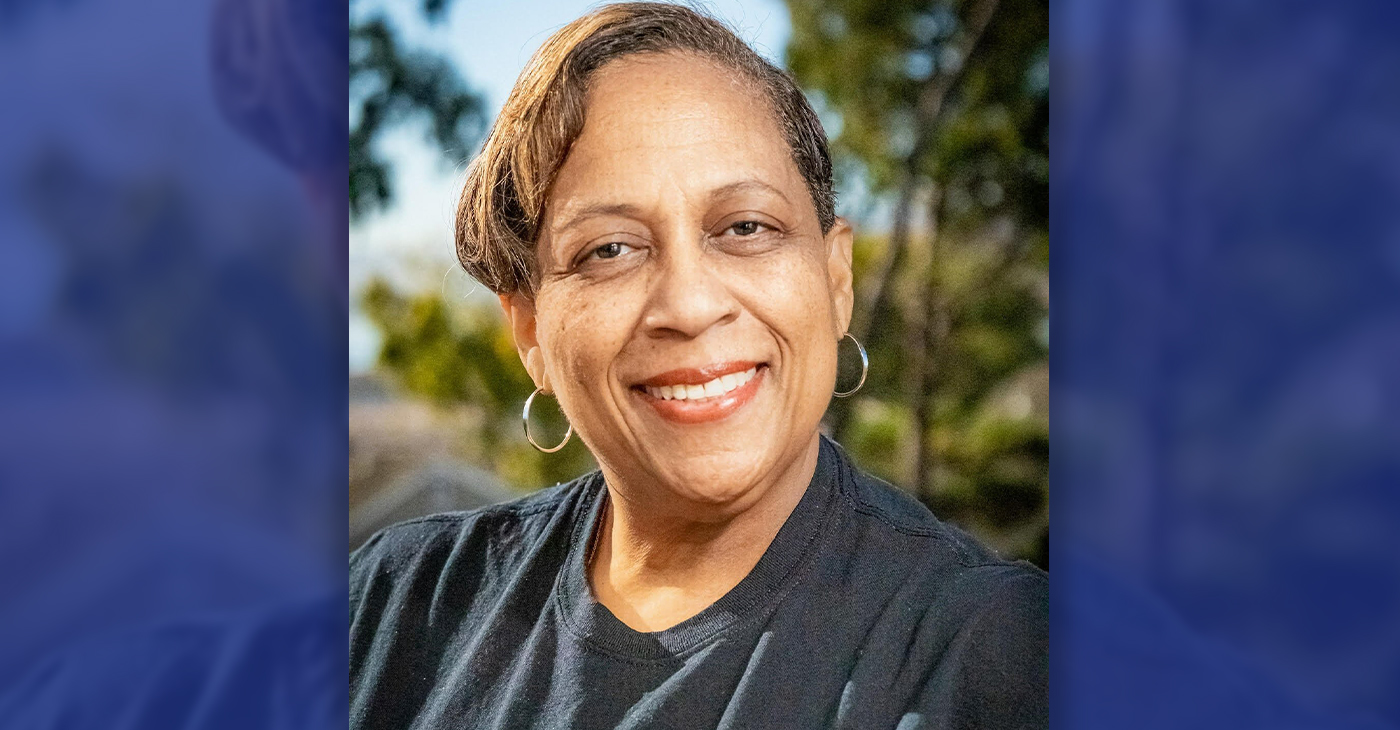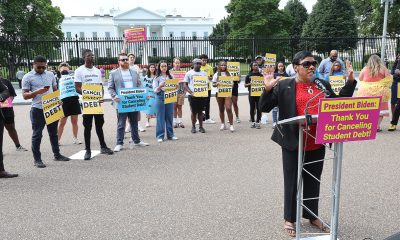Op-Ed
Green Tree Must Pay $63 Million for Mistreating Borrowers
By Charlene Crowell
NNPA Columnist
Consumers harmed by Green Tree Servicing, LLC, a major mortgage servicer, won an important victory. Joint enforcement actions by the Federal Trade Commission (FTC) and the Consumer Financial Protection Bureau (CFPB) resulted in a return of $48 million to affected borrowers and a $15 million civil penalty fine, together totaling $63 million.
According to financial regulators from 2010-2014, Green Tree Servicing, LLC, mistreated mortgage borrowers who were trying to save their homes from foreclosures. The litany of charges reads like a financial nightmare for troubled homeowners:
• Misrepresentation of monies consumer owed or the terms of their loans;
• Failure to honor mortgage modifications made by earlier servicers;
• Sharing borrowers’ debts with employers and/or other third parties;
• Failure to investigate disputes before continuing collections;
• Threats of arrest, imprisonment, property seizure, and wage garnishments; and
• Calling borrowers and leaving voice mails at their homes and workplaces as early as 5:00 am and as late as 11:00 pm.
“Green Tree failed consumers who were struggling by prioritizing collecting payments over helping homeowners,” said Richard Cordray, CFPB director. “When homeowners in distress had their mortgages transferred to Green Tree, their previous foreclosure relief plans were not maintained. We are holding Green Tree accountable for its unlawful conduct.”
Sharing Director Cordray’s concerns, Jessica Rich, director of the FTC’s Bureau of Consumer Protection added, “It’s against the law for a loan servicer to lie about the debts people owe, or threaten and harass people about their debts.”
The irony is that Green Tree ‘specialized’ in servicing delinquent loans and took pride in being known as a “high touch” servicer. Nationwide, the firm ‘touched’ its borrowers; but in all the wrong ways.
In addition to the ills cited above, Green Tree was also charged with pressuring consumers to make payments to a third-party service that charged a $12 ‘convenience fee’ for every transaction. Some consumers were told that they had to use the service to avoid a late fee.
Other consumers who knew they were late in their mortgage payments were charged up-front payments, even for programs that banned upfront charges. Even borrowers who attempted to avoid foreclosures via short sales encountered unexplained delays up to six months, despite having been promised quicker actions.
“It is unfortunate to learn that these servicing ills,” said Paul Leonard, senior vice-president for federal policy at the Center for Responsible Lending. “No one deserves financial exploitation – particularly when it involves the single, largest investment many consumers make in a lifetime. Yet it is also an encouraging sign that joint enforcement actions can hold these services accountable.”
The enforcement actions are also a reminder that while consumers choose which lender to finance their home, they have no choice in selecting their servicer. And as with borrowers being serviced by Green Tree, it can be a costly difference.
In years gone by, many lenders also serviced their loans. Parents and grandparents typically received their mortgage from the same bank that held their checking and savings accounts. Customers knew their bank and trusted it to be fair and accurate.
The nation’s foreclosure crisis shattered many consumers’ trust of lenders – in addition to marked changes in today’s financial services marketplace.
Today, few mortgages are serviced by the lender that originated the loan. Instead, most loans are bundled and sold on the secondary market as investments. In the course of selling and re-selling, a single mortgage may have several servicers.
All too often, it is only when borrowers have a mortgage problem that they discover how their loan payments have been applied or related fees assessed. As servicers change, troubled borrowers can discover that their lending records have not always been kept accurately or in their entirety.
Because of FTC and CFPB, Green Tree will also be required to take several corrective measures:
• End all servicing violations;
• Provide quality customer service;
• Honor prior loss mitigation agreements;
• Help troubled borrowers to convert pending loan modifications into permanent ones;
• Offer written options to help troubled borrowers keep their homes, including those in which foreclosures have not yet been completed; and
• Create a detailed data integrity programs that tests, identifies and corrects errors in transferred loans.
What CFPB and FTC have ordered in Green Tree’s enforcement really reads like a best practices handbook. Here’s hoping other mortgage servicers will take note.
Charlene Crowell is a communications manager with the Center for Responsible Lending. She can be reached at Charlene.crowell@responsiblelending.org.
###
Activism
COMMENTARY: My Sunday School Lesson with President Jimmy Carter
When I saw him, Carter was spry, quick-witted, and kind. The former president wore a bolo string tie anchored by an eight-stone turquoise clasp that dangled below the neck, as he began the lesson on the subject of grief and the death of his 28-year-old grandson. Drawing from scripture (on this particular day, a passage on the persecution of the Thessalonians), Carter said such moments were simply tests of one’s faith, endurance, and hope.

By Emil Guillermo
President Jimmy Carter, at age 100, didn’t make it to the new year, nor the next presidential inaugural.
I’ve always been a big Carter fan, so the news of his passing brought me back to a happy place.
Plains, Georgia, 2016.
I was visiting family not far from the land of presidential peanut farmers. I found myself the only full-blooded Filipino in the room at Maranatha Baptist Church, the spiritual home base for the esteemed No. 39.
President Carter looked fine that Sunday in Plains. But especially fine for his job on that day– to give the Sunday school lesson on what coincidentally was the 15th anniversary of 9/11.
Carter’s health made headlines in 2015 when he disclosed having both brain and liver cancer. It was thought he had just two or three weeks to live.
Everyone’s always underestimating Carter. After treatments, Carter’s forecast turned out not to be true.
When I saw him, Carter was spry, quick-witted, and kind. The former president wore a bolo string tie anchored by an eight-stone turquoise clasp that dangled below the neck, as he began the lesson on the subject of grief and the death of his 28-year-old grandson. Drawing from scripture (on this particular day, a passage on the persecution of the Thessalonians), Carter said such moments were simply tests of one’s faith, endurance, and hope.
“We lack inspiration, we lack the idealism to set our goals high. We’ve been satisfied with mediocrity. And I include myself,” Carter said. People want an average life, instead of aspiring to be, “outstanding, or superb or brilliant or exceptional.”
“I’m afraid that our country and its effect on people of other nations has suffered from the aftermath of 9/11,” Carter said. He “didn’t want to brag,” but said his goal for the country was always to be “superb and be a country that promoted peace and human rights…While I was in office, we never dropped a bomb, lost a missile, or fired a bullet.”
“Since 9/11,” Carter said, “we’ve pretty much abandoned our commitment to human rights as we reacted to terrorism.” He lamented that Afghanistan had become the longest war in American history, a direct outcome of 9/11, as well as the invasion of Iraq, which Carter called “unnecessary.”
Carter, whose administration took us out of an energy crisis, also pointed out how the U.S. is still suffering from a financial crisis that has exposed a deep inequality that has divided us as a people.
“We’ve become distrustful of people who are different from us,” Carter said. “We used to be a proud heterogeneous nation…and now we are fearful…and we’ve become poorer as a country.”
Carter won a Nobel Peace Prize in 2002; a fact that belies how many conservatives view his efforts to find a peace in the Middle East as “anti-Semitic.”
Jimmy Carter’s worldview requires open minds to come together. Too often. these days, that seems nearly impossible.
About the Author
Emil Guillermo is a journalist and commentator He was the first Filipino American to host a national news show in 1989 at NPR’s “All Things Considered.” See Emil Amok’s Takeout on www.patreon.com/emilamok Subscribe to him on YouTube.com/@emilamok1
Activism
In 1974, Then-Gov. Jimmy Carter Visited the Home of Oakland Black Black Political Activist Virtual Murrell While Running for President
civil rights icon Georgia State Representative Julian Bond said that Carter, along with governors Reuben Askew of Florida, Dale Bumpers of Arkansas, and Terry Sanford of North Carolina, were all a part of what was being dubbed the “New South” and so supported civil rights and voting rights for African Americans.

By Virtual T. Murrell
Special to The Post
On his way to seeking the presidency, then-Gov. Jimmy Carter visited the Bay Area in his capacity as campaign chairman of the Democratic National Committee in March of 1974.
A friend of mine, Bill Lynch, a Democrat from San Francisco, had been asked to host Carter, who was then relatively unknown. Seeking my advice on the matter, I immediately called my friend, civil rights icon Georgia State Representative Julian Bond, for his opinion.
Bond said that Carter, along with governors Reuben Askew of Florida, Dale Bumpers of Arkansas, and Terry Sanford of North Carolina, were all a part of what was being dubbed the “New South” and so supported civil rights and voting rights for African Americans.
Based on Julian’s comments, I agreed to host the governor. We picked him up at the San Francisco Airport. With his toothy smile, I could tell almost right away that he was like no other politician I had ever met. On his arrival, there was a message telling him to go to the VIP room, where he met then-Secretary of State Jerry Brown.
After leaving the airport, we went to a reception in his honor at the home of Paul “Red” Fay, who had served as the acting secretary of the Navy under President John Kennedy. (Carter, it turned out, had been himself a 1946 graduate of the U.S. Naval Academy and served as a submariner in the 1950s.)
The following afternoon, the Niagara Movement Democratic Club hosted a reception for Carter, which was a major success. Carter indicated that he would be considering running for president and hoped for our support if he did so.
As the event was winding down, I witnessed the most amazing moment: Carter’s wife, Rosalynn, was in the kitchen with my former wife, Irene, wearing an apron and busting suds! You would have to have been there to see it: The first and last time a white woman cleaned up my kitchen.
A few months later, President Richard Nixon resigned amid the Watergate scandal. He was succeeded by his vice president, Gerald Ford.
On the heels of that scandal, Jimmy Carter’s election in 1976 represented integrity and honesty at a point in America’s history when he was just what the nation needed to lead as president of the United States.
Activism
Life After Domestic Violence: What My Work With Black Women Survivors Has Taught Me
Survivors sometimes lack awareness about the dynamics of healthy relationships, particularly when one has not been modeled for them at home. Media often minimizes domestic abuse, pushing the imagery of loyalty and love for one’s partner above everything — even harm.

By Paméla Michelle Tate, Ph.D., California Black Media Partners
It was the Monday morning after her husband had a “situation” involving their child, resulting in food flying in the kitchen and a broken plate.
Before that incident, tensions had been escalating, and after years of unhappiness, she finally garnered enough courage to go to the courthouse to file for a divorce.
She was sent to an on-site workshop, and the process seemed to be going well until the facilitator asked, “Have you experienced domestic abuse?” She quickly replied, “No, my husband has never hit me.”
The facilitator continued the questionnaire and asked, “Has your husband been emotionally abusive, sexually abusive, financially abusive, technologically abusive, or spiritually abusive?”
She thought about how he would thwart her plans to spend time with family and friends, the arguments, and the many years she held her tongue. She reflected on her lack of access to “their money,” him snooping in her purse, checking her social media, computer, and emails, and the angry blowups where physical threats were made against both her and their children.
At that moment, she realized she had been in a long-suffering domestic abuse relationship.
After reading this, you might not consider the relationship described above as abusive — or you might read her account and wonder, “How didn’t she know that she was in an abusive relationship?”
Survivors sometimes lack awareness about the dynamics of healthy relationships, particularly when one has not been modeled for them at home. Media often minimizes domestic abuse, pushing the imagery of loyalty and love for one’s partner above everything — even harm.
After working with survivors at Black Women Revolt Against Domestic Violence in San Francisco, California, I have learned a great deal from a variety of survivors. Here are some insights:
Abuse thrives in isolation.
Societal tolerance of abusive behavior is prevalent in the media, workplaces, and even churches, although there are societal rules about the dos and don’ts in relationships.
Survivors are groomed into isolation.
Survivors are emotionally abused and manipulated almost from the beginning of their relationships through love-bombing. They are encouraged or coerced into their own little “love nest,” isolating them from family and friends.
People who harm can be charismatic and fun.
Those outside the relationship often struggle to believe the abuser would harm their partner until they witness or experience the abusive behavior firsthand.
Survivors fear judgment.
Survivors fear being judged by family, friends, peers, and coworkers and are afraid to speak out.
Survivors often still love their partners.
This is not Stockholm Syndrome; it’s love. Survivors remember the good times and don’t want to see their partner jailed; they simply want the abuse to stop.
The financial toll of abuse is devastating.
According to the Allstate Foundation’s study, 74% of survivors cite lack of money as the main reason for staying in abusive relationships. Financial abuse often prevents survivors from renting a place to stay. Compounding this issue is the lack of availability of domestic abuse shelters.
The main thing I have learned from this work is that survivors are resilient and the true experts of their own stories and their paths to healing. So, when you encounter a survivor, please take a moment to acknowledge their journey to healing and applaud their strength and progress.
About the Author
Paméla Michelle Tate, Ph.D., is executive director of Black Women Revolt Against Domestic Violence in San Francisco.
-

 Activism3 weeks ago
Activism3 weeks agoBooks for Ghana
-

 Arts and Culture4 weeks ago
Arts and Culture4 weeks agoPromise Marks Performs Songs of Etta James in One-Woman Show, “A Sunday Kind of Love” at the Black Repertory Theater in Berkeley
-

 Bay Area3 weeks ago
Bay Area3 weeks agoGlydways Breaking Ground on 14-Acre Demonstration Facility at Hilltop Mall
-

 Activism4 weeks ago
Activism4 weeks ago‘Donald Trump Is Not a God:’ Rep. Bennie Thompson Blasts Trump’s Call to Jail Him
-

 Activism3 weeks ago
Activism3 weeks agoLiving His Legacy: The Late Oscar Wright’s “Village” Vows to Inherit Activist’s Commitment to Education
-

 Arts and Culture3 weeks ago
Arts and Culture3 weeks agoIn ‘Affrilachia: Testimonies,’ Puts Blacks in Appalacia on the Map
-

 Alameda County3 weeks ago
Alameda County3 weeks agoAC Transit Holiday Bus Offering Free Rides Since 1963
-

 #NNPA BlackPress4 weeks ago
#NNPA BlackPress4 weeks agoCalifornia, Districts Try to Recruit and Retain Black Teachers; Advocates Say More Should Be Done























































